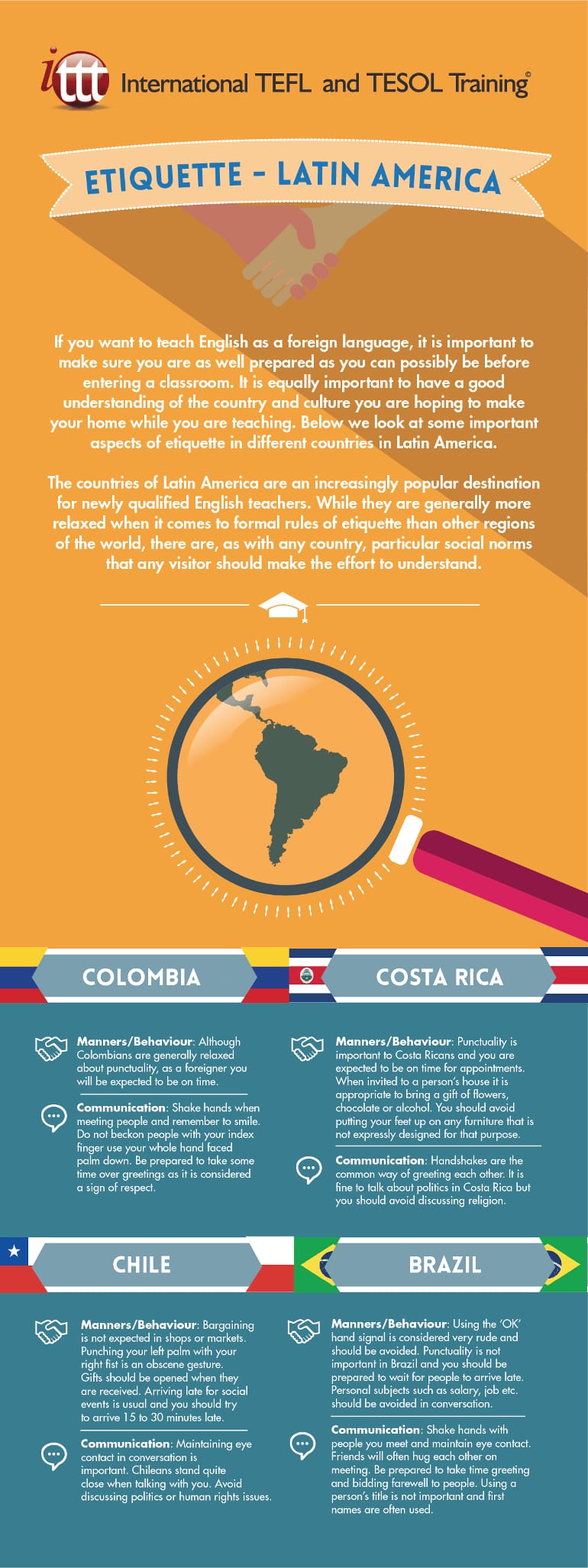Teaching English abroad is a great way to travel the world and experience other peoples and cultures. As English teachers it is important that we take the time to learn about the countries we choose to live and work in not only to show respect to our hosts but also to help our students to learn more productively. Understanding the cultural or social reasons behind why people in different countries behave or react in particular ways can help us to prepare better lessons and activities for our students and develop better relationships with our colleagues.
Being aware of the subtle social cues that exist in any society can mean the difference between a truly rewarding experience and one that you wish never to repeat. When considering regions such as Latin America it can be tempting to assume that there is little difference between neighbouring countries, however, each nation and its people are unique and have a number of differences any new arrival should be aware of. In Chile, for example, punctuality is not important and it is usual for people to arrive several minutes late for social engagements, whereas in Costa Rica punctuality is taken seriously and you are expected to be on time for appointments. In Colombia you should not use your index finger to beckon people but should instead use your whole hand outstretched with the palm facing down and using the “OK” gesture is likely to get you into hot water in Brazil as it is considered very rude. It is also important to be aware of and sensitive to a country’s history. Some nations have a troubled political past (and sometimes present) while others have strong religious affiliations and this can affect what is considered appropriate for general conversations. In Costa Rica, discussing politics is fine but talking about religion should be avoided. In Chile it is best to avoid talking about politics or human rights issues. This is just a very brief insight into the social customs of these Latin American countries, but even a little interest and understanding can go a long way towards a successful and rewarding experience teaching English in a foreign country.

If you wish to display this infographic on your website, please copy and paste the code below into your own web pages.
View an enlarged version of this infographic:
big version


